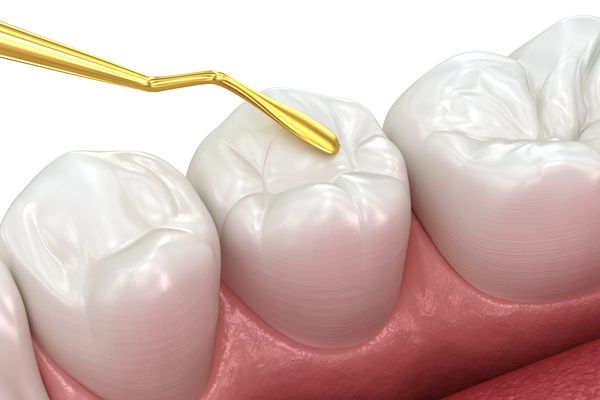What Does Tooth Nerve Pain Indicate?

There may not be a more irritating, and quite frankly painful, oral health problem than tooth nerve pain.
Due to the extreme sensitivity and severe ache caused by nerve pain, it can lead many to become concerned something is severely wrong and seek ways to fix the tooth nerve pain.
What Does Tooth Nerve Pain Indicate?
In most cases, tooth nerve pain does indicate an underlying issue that is causing the pain. By treating the underlying condition, the nerve pain should go away.
The following are the four most common causes of tooth nerve pain.
Cracked or chipped tooth
One of the more common causes of tooth pain is a cracked or chipped tooth. In many instances, a damaged tooth is obvious, especially when it leads to severe pain.
However, there are instances where cracked or chipped teeth may go unnoticed. Anyone who experiences tooth nerve pain and is unable to diagnose the underlying condition should check for a crack or chip. They should also consider visiting the dentist for proper diagnosis and treatment for the tooth nerve pain.
In most instances, a dental bonding, dental veneer or a dental crown can fix a damaged tooth.
Tooth decay
Another major cause of tooth nerve pain is tooth decay. While tooth decay does not damage the tooth nerve in most cases, the cavity can worsen and lead to nerve damage. This is especially true when the tooth decay leads to a hole in the tooth.
In the event a cavity is noticed, it is important to seek dental care as soon as possible, especially if the cavity has led to tooth nerve pain.
Dentists can treat tooth decay through dental restoration. In some instances, a root canal may be necessary to treat the tooth nerve pain.
Teeth grinding
Teeth grinding is a significant issue, and it is a common cause of tooth nerve pain. Unfortunately, it is hard to catch ourselves in the act of grinding as it most commonly takes place while we are asleep.
Grinding not only damages the enamel of the tooth, but it can affect deeper levels of the tooth, including the tooth nerve.
See a dentist so that they can recommend the best mouthguard to wear during sleep. When tooth grinding leads to tooth nerve pain, a root canal is often the only way to treat the issue properly.
Gum disease
Sometimes, tooth nerve pain has nothing to do with our teeth. Instead, the gums may be the issue. When gum disease forms, it often spreads to deeper levels of the teeth, including the tooth nerve.
Anyone who experiences tooth nerve pain and cannot diagnose the root cause should visit the dentist. This is especially important if there are any other signs of gum disease, such as gum sensitivity or bleeding gums while brushing.
With proper, prompt dental care, tooth nerve pain caused by gum disease can be effectively treated in a relatively short amount of time.
Request an appointment in our Lake Forest office here: https://stunningsmilesoflakeforest.com.
Recent Posts
A broken tooth is one of those injuries that always seem to happen at the worst possible times. A common way that people chip or break teeth is by biting on something hard. Such injuries are more likely to occur when the tooth has already been weakened by tooth decay.The severity of the damage to…
You should see an emergency dentist for your abscessed tooth. This condition is an infection. Severe pain and swelling are its main symptoms. Seeking emergency dental care can help right away. An abscessed tooth can become a jaw infection if it does not receive immediate treatment. If you want to find out why you should…
It is a good idea to know which situations require the attention of an emergency dentist. Read on to learn when you should head to an emergency dentist. You can generally avoid the need to see an emergency dentist by practicing basic dental hygiene. However, sometimes, proper oral hygiene is insufficient to prevent a dental…
Do you need an emergency dentist? The best way to deal with a dental emergency is to prevent it from occurring in the first place. Although emergency dentists offer services when urgent dental care is needed, they also strive to help patients prevent emergencies from happening through good oral hygiene, wearing a mouthguard, and avoiding…


